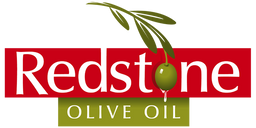If there's one ingredient that can effortlessly enhance your culinary creations, it's balsamic vinegar. With its rich, complex flavors and versatility in various dishes, balsamic vinegar has rightfully earned its place as a staple in kitchens around the globe. However, not all balsamic vinegar is created equal. To help you explore the vast array of options and find the perfect one for your needs, here are some invaluable tips to consider.
- Know Your Types: Traditional vs. Commercial
Understanding the distinction between traditional and commercial balsamic vinegar is crucial. Traditional balsamic vinegar, often labeled as "Aceto Balsamico Tradizionale," is crafted from the time-honored methods of Modena or Reggio Emilia in Italy. It undergoes a meticulous aging process in wooden barrels, resulting in a complex flavor profile with hints of sweetness and acidity.
On the other hand, commercial balsamic vinegar is more widely available and typically less expensive. While it may lack the depth and authenticity of traditional varieties, it still offers a range of flavors suited to various culinary applications.
- Consider the Aging Process
Aging plays a pivotal role in the development of balsamic vinegar's flavor. Traditional varieties are aged for at least 12 years, with some aging for extended periods, imparting a more profound complexity and viscosity. Commercial balsamic vinegar, however, may be aged for shorter durations or rely on additives to mimic the flavor profile of their traditional counterparts.
- Check the Label: Ingredients Matter
When selecting balsamic vinegar, scrutinizing the label is essential. Opt for varieties with minimal ingredients, such as grape must and wine vinegar. Avoid those containing added sugars, caramel color, or thickeners, as these can detract from the authenticity and purity of the product.
- Taste Test: Let Your Palate Guide You
Sampling different balsamic vinegars can provide invaluable insight into their flavor profiles. Look for tasting events or specialty stores that offer tasting opportunities. Pay attention to sweetness, acidity, and viscosity, and trust your palate to guide you toward your preferred choice.
- Consider Intended Use
The versatility of balsamic vinegar makes it suitable for an array of culinary applications. Whether you're drizzling it over salads, marinating meats, or adding a finishing touch to desserts, considering the intended use can help narrow down your options. Opt for a sweeter, thicker vinegar for desserts, while a more acidic variety may be preferable for savory dishes.
- Price Isn't Everything
While it's tempting to equate quality with price, this is only sometimes the case regarding vinegar. While traditional, aged varieties command higher price tags due to their labor-intensive production methods, excellent commercial options are also available at more affordable prices. Ultimately, focus on finding a vinegar that aligns with your taste preferences and intended use rather than solely fixating on price.
- Storage and Shelf Life
Proper storage is essential to preserve the integrity of balsamic vinegar. Store it in a cool, dark place away from heat and sunlight to prevent oxidation and degradation of flavors. Additionally, the bottle should be tightly sealed after each use to minimize exposure to air. While balsamic vinegar has a long shelf life, using it within a reasonable timeframe ensures optimal freshness and flavor.
Wrapping Up
Choosing the best balsamic vinegar near you involves understanding its types, aging process, ingredients, and intended use. By following these tips and allowing your palate to guide you, you can begin a flavorful journey that adds depth and complexity to your culinary creations. So, the next time you reach for a bottle of balsamic vinegar at Redstone Olive Oil, do so with confidence, knowing that you've selected a product worthy of your discerning taste!Top of Form






